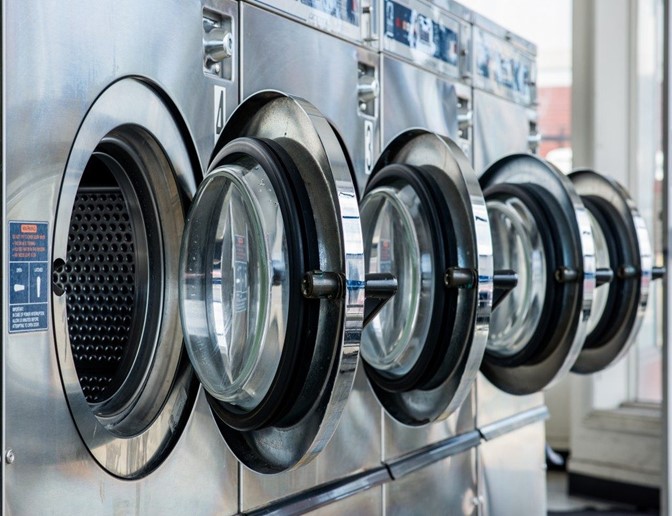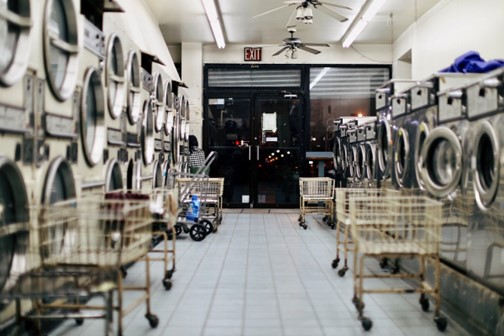Introduction
Looking to explore the lucrative laundry business in South Africa? You’re onto a profitable venture! A laundry business is a service that washes, dries, irons, and folds clothes and other fabrics for customers.
The demand for laundry services is soaring, owing to hectic lifestyles and limited access to washing facilities. With minimal investment and basic skills, you can easily enter the market. Whether you opt for onsite, in-house, or self-service models, the growth potential is vast.
Just follow these steps: conduct thorough research, register your company, secure a prime location, equip it with essentials, set competitive pricing, and market your services effectively. Get ready to provide quality, convenience, and value to your customers.
To start a laundry business in South Africa:
1. Comprehend What Laundry Business Is

To kickstart a laundry business in South Africa, first, you must comprehend what a laundry business is.
Laundry business deals with clothes and other fabrics. It provides washing, drying, ironing, and folding services for clients.
A laundry business in South Africa is profitable because it:
- Has a strong demand due to the hectic lifestyles of many people with busy schedules, who lack the time to do individual laundry.
- Grants access to washing machines or water which is limited for some individuals, further driving the need for professional cleaning services.
- Provides many people with the quality and convenience that come with professional laundering.
Starting a laundry business is relatively easy as there’s a low barrier to entry. With a modest investment, basic equipment, and minimal skills, you can start.
Moreover, there’s ample opportunity for growth. When you provide top-notch service, convenience, and value, you can expand your customer base and increase revenue over time.
Laundry business models include:
- Onsite Operation: Customers bring laundry to you or you collect it at a fixed location like a shop, kiosk, or van.
- In-House Services: Work within larger establishments like hotels, hospitals, or schools, driving your services to meet specific needs and standards.
- Self-Service: Clients use your washing machines and dryers, paying per cycle or hour.
2. Conduct Research and Planning
To initiate a laundry business in South Africa, conduct adequate research and planning.
This helps you:
- Know current and future trends, opportunities, and challenges in the laundry industry.
- Assess demand and profitability in your location and market segment.
- Identify your strengths, weaknesses, opportunities, and threats (SWOT) as a business owner.
- Avoid costly mistakes and risks that can harm your business’s success.
To identify your target market, specialty, and competition:
- Define your ideal customer profile, including demographics, preferences, and pain points.
- Determine your unique selling proposition (USP), such as quality, speed, convenience, or price advantage.
- Study your competitors to differentiate yourself based on services, prices, strengths, and weaknesses.
Now, you need a detailed business plan and it involves
- Setting SMART goals and objectives for revenue, profit, growth, and customer satisfaction.
- Estimating startup and operational costs, and planning financing.
- Developing marketing strategies, including branding, promotion, and distribution channels.
- Outlining operational processes for laundry procedures, quality standards, customer service, and inventory management to ensure efficiency and compliance.
3. Incorporate Your Company
To begin a laundry business in South Africa, incorporate your company.
To register your company, take the following steps:
- Choose a Unique Business Name: You can check its availability and reserve it online through the CIPC for a fee of R50. You can reserve up to four names for six months.
- Select Your Business Structure: Options include Private Company (Pty) Ltd, Public Company (Ltd), Non-Profit Company (NPC), or External Company. A private company is usually the best fit for small to medium-sized laundry businesses.
- Gather Necessary Documents: These include a Notice of Incorporation (CoR 14.1), Memorandum of Incorporation (CoR 15.1A or CoR 15.1B), certified copies of ID documents for each incorporator and director, and a power of attorney if someone else is registering the business for you.
- Register Online with the CIPC: Create an account, submit your documents, and pay the R175 registration fee either online or at a bank.
- Await Approval: The CIPC reviews your application and either approves or rejects it. If it approves your registration, you receive a registration certificate (CoR 14.3) and a company registration number.
- Register with SARS: After CIPC registration, register with the South African Revenue Service (SARS) for tax purposes. Do this online, via phone, or at a SARS branch, providing your business details and registering for applicable taxes like income tax, value-added tax (VAT), and pay-as-you-earn (PAYE).
- Obtain Necessary Permits and Licenses: Depending on your location and business activities, you may need additional permits and licenses from your local municipality or other authorities, such as health and safety permits or industry-specific licenses. Check with your local authority for specific requirements.
4. Determine Your Location, Equipment, and Staff
To commence a laundry business in South Africa, determine your location, equipment, and staff.
Selecting the right location for your laundry business impacts both your profitability and customer satisfaction. Consider accessibility, ensuring easy reach for customers and suppliers with ample parking and visibility. Convenience is key too; aim for proximity to your target market, like residential areas or office complexes, where demand is high.
Equip your laundry business with essential tools such as washers, dryers, ironing stations, and folding tables. Make sure you have a variety of machines with different capacities and features to handle various loads efficiently.
Hiring and training competent staff is vital. Start with defining your staffing needs, then recruit and train employees accordingly. Offer thorough training on equipment operation, laundry procedures, and customer service to maintain quality standards.
Retention is also crucial; motivate and reward your staff to ensure continuous engagement and commitment to providing excellent service.
5. Set Your Pricing
To launch a laundry business in South Africa, set your pricing.
To determine your pricing, consider the following:
- Per Item Pricing: Charge a fixed rate for each laundry item, regardless of size or fabric. It’s straightforward but might not reflect actual costs accurately.
- Per Weight Pricing: Bill customers on the weight of laundry. It’s fair and efficient, but no consideration for fabric complexity.
- Per Hour Pricing: Charge for every hour of laundry services. It’s flexible but might not be consistent for customers.
Factors to determine optimal pricing include:
- Costs: Calculate all business expenses and divide using expected customers or units to find the break-even point.
- Competition: Research competitor prices and services to set competitive rates with your unique advantages.
- Value proposition: Communicate the benefits your customers get from your service. Highlight unique features to justify pricing.
6. Carry out Effective Marketing
To start a laundry business in South Africa, carry out effective marketing.
Marketing your laundry business helps you:
- Increase its visibility among potential and existing customers.
- Communicate what sets your laundry business apart from the competition.
- Build trust with customers, encouraging repeat business and referrals.
- Help you grow your customer base, revenue, and market share over time.
To market your laundry business effectively, consider using social media, online platforms, flyers, loyalty and referral programs.
To improve your brand identity and reputation:
- Select a catchy name, logo, and slogan that reflects your business values.
- Maintain a consistent tone and voice across all marketing channels.
- Ensure your laundry services consistently meet or exceed customer expectations.
- Offer friendly, responsive service and promptly address any issues or complaints.
- Regularly seek feedback from customers to improve services and reputation.
Recap
To start a laundry business, first, comprehend what it entails. Then, conduct thorough research and planning to understand the market, competition, and target audience. Next, incorporate your company to establish a legal entity. Determine your location, equipment needs, and staff requirements to efficiently operate. Set competitive pricing that reflects your services and costs. Lastly, execute effective marketing strategies to attract and retain customers, ensuring steady growth and success.


















